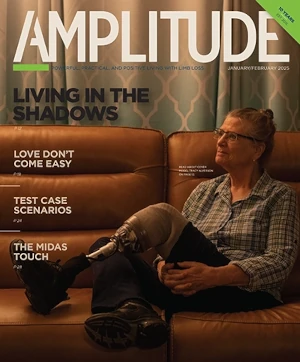The March/April 2016 issue of Amplitude reported on research that suggested that having a sense of purpose might help lower your health risks and increase your lifespan.

That should be great news—unless you don’t have a sense of purpose in your life. What then?
A study published in the March 2016 issue of Social Psychology Quarterly revealed that individuals in their 60s who give advice to a broad range of people—family members, friends, neighbors, and strangers—tend to see their lives as especially meaningful.
Unfortunately, this also happens to be the age when opportunities for dispensing advice become increasingly scarce. According to Markus H. Schafer, PhD, an assistant professor of sociology at the University of Toronto and the lead author of the study, some scholars have argued that the essence of “mattering”—the idea that one is meaningful and consequential to other people—is most under threat during late-middle age when many people retire and enter the empty nest phase of life.
“The mattering perspective helps explain why it is this period of the lifespan, in particular, when it is important for people to feel like they can still have influence on others through actions such as giving advice,” Schafer said. “Schools, religious institutions, civic organizations, and other community groups could consider how to facilitate intergenerational mentorship experiences and to creatively enable more older adults to be advice-givers.”
For amputees, providing peer support or mentoring to other amputees and/or participating in a support group could also offer them an opportunity to share their knowledge with others.
As individuals age and their life roles change—when they are no longer parenting or working for wages to support their family—a large part of what once gave their life meaning is lost. According to a study published in 2004 in The Journals of Gerontology titled “Formal Volunteering as a Protective Factor for Older Adults’ Psychological Well-Being,” volunteering can help renew individuals’ sense of purpose.
The Health Benefits of Volunteering: A Review of Recent Research, a 2007 report published by the Corporation for National & Community Service, summarized numerous studies that consistently demonstrated a positive relationship between volunteering and health.
Ultimately, by volunteering and sharing their knowledge with others, older adults can help their community and themselves.
It’s truly a win-win scenario.
For more information about the value of volunteering for older adults and others, visit http://tinyurl.com/kkltpp.
This article was partly based on information provided by the American Sociological Association (ASA).



